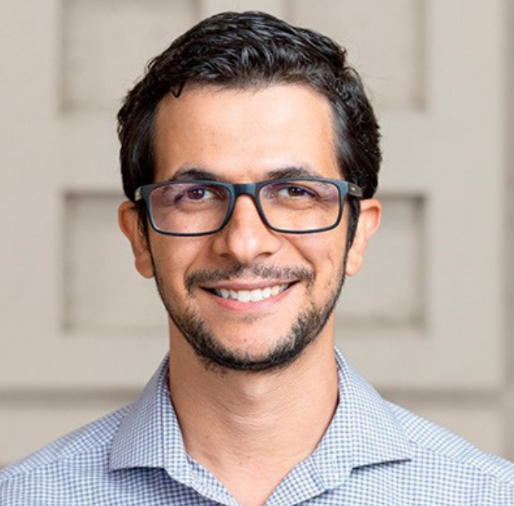Dr. Vinícius Wilian D. Cruzeiro
Dr. Vinícius Wilian D. Cruzeiro
Department of Chemistry
Stanford University
“Pushing boundaries in computational chemistry: describing quantum effects in large and complex systems with accelerated calculations”
Computational chemistry acts as a “virtual microscope” that em- ploys quantum mechanics (or approximations to it) to allow us to observe the behavior of matter at the atomic level. These computational simulations not only advance our understanding of experimental observations but can even be used to guide experimental designs. Therefore, innovations that extend existing methods in new directions or that make the calculations faster are essential to push the computational chemistry field forward, allowing for novel and more complex systems to be explored. In this talk, we will examine three cases where limitations in existing methods were surpassed and applied to address a range of different chemical problems. First, we will see how – despite limitations in classical force fields to describe bond breaking/formation and electron transfer – we were able to use classical force fields to describe pH and redox effects in proteins. Then, we will see how to exploit the power of GPU-acceleration in quantum calculations while connect- ing quantum chemistry programs with third-party consumers in an efficient and easy-to-use way. Lastly, we will examine quantitative predictions in atmospheric chemistry for the reactive uptake of N2O5 by aerosol particles, which is notable as experimental measurements of this process are particularly difficult to obtain, but computational chemistry provided insight into the reaction mechanism. Taken together, these studies show exciting applications of computational chemistry that either directly provided new insights to experimental observations or were performed in situations where experimental measures are inaccessible.
Vinícius Wilian D. Cruzeiro
Dr. Vinícius Cruzeiro is currently a postdoctoral researcher at Stanford University working with Professor Todd Martínez at the Department of Chemistry. Dr. Cruzeiro obtained his Ph.D. in Chemistry from the University of Florida working with Professor Adrian Roitberg. Dr. Cruzeiro’s research with computational/theoretical chemistry aims at accurately describing the behavior of proteins, biomolecules, and related systems using molecular simulations, quantum mechanics, and machine learn- ing representations while leveraging collaborations with experimentalists. Dr. Cruzeiro develops methodologies and software for molecular simulations and electronic structure calculations, including simulations to pre-dict coupled electrochemical and pH effects, enhanced sampling techniques, and quantum mechanics/molecular mechanics approaches. Some of Dr. Cruzeiro’s recent research interests include elucidating enzyme-catalyzed reaction mechanisms, making quantum calculations more accessible and efficient, describing the X-ray emission spectrum of liquid water, and providing quantitative predictions about the reactive update of N2O5 by aerosol particles in atmospheric chemistry.
